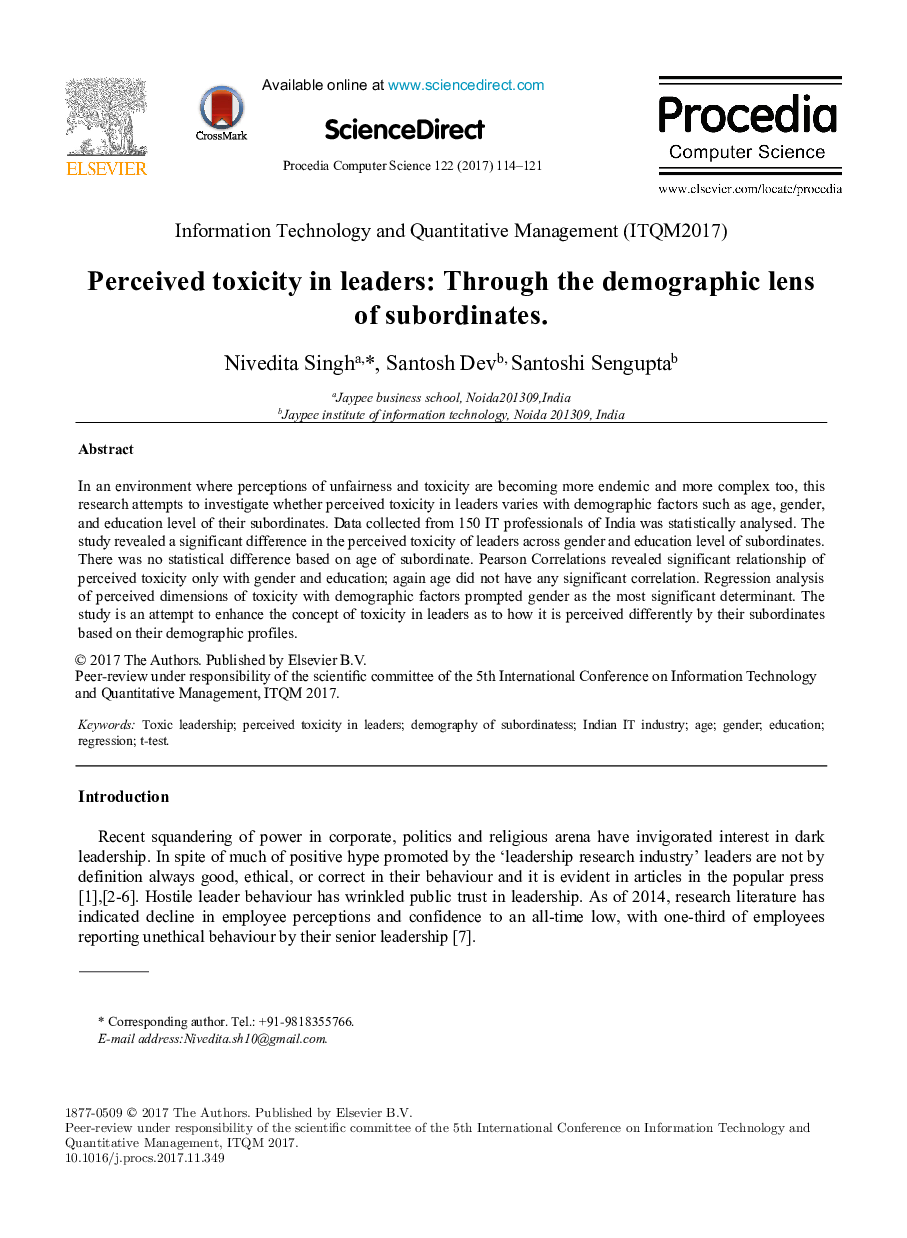| Article ID | Journal | Published Year | Pages | File Type |
|---|---|---|---|---|
| 6901259 | Procedia Computer Science | 2017 | 8 Pages |
Abstract
In an environment where perceptions of unfairness and toxicity are becoming more endemic and more complex too, this research attempts to investigate whether perceived toxicity in leaders varies with demographic factors such as age, gender, and education level of their subordinates. Data collected from 150 IT professionals of India was statistically analysed. The study revealed a significant difference in the perceived toxicity of leaders across gender and education level of subordinates. There was no statistical difference based on age of subordinate. Pearson Correlations revealed significant relationship of perceived toxicity only with gender and education; again age did not have any significant correlation. Regression analysis of perceived dimensions of toxicity with demographic factors prompted gender as the most significant determinant. The study is an attempt to enhance the concept of toxicity in leaders as to how it is perceived differently by their subordinates based on their demographic profiles.
Related Topics
Physical Sciences and Engineering
Computer Science
Computer Science (General)
Authors
Nivedita Singh, Santosh Dev, Santoshi Sengupta,
